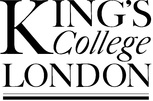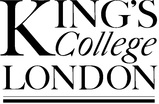
The third research workshop of our seminar series will take place in Birmingham, thanks to our host Birmingham City University on the 6th November 2013. The theme is: A third space for creative arts & creative industries? The role of Higher education in creative platforms, spaces and networks The workshop will focus on the collaborations, networks and spaces shared by creative industries (including creative practitioners, artists and freelancers) and higher education. It will look at both formal arrangements and practices (such as residencies, workspaces and teaching) as well as informal networks and shared activities. It will consider issues of sustainability
and ask how benefits are equally shared by the partners involved. It will also
examine the role played by institutions, geographies and policy frameworks
that influence the development of these shared initiatives.
The call for contributions to the workshop is now OPEN, the deadline to send abstracts has been extended till 10th of September 2013.
The workshop will be opened by an international keynote speaker: Sebastian Olma from Serendipity Lab; you can read his biography below.
and ask how benefits are equally shared by the partners involved. It will also
examine the role played by institutions, geographies and policy frameworks
that influence the development of these shared initiatives.
The call for contributions to the workshop is now OPEN, the deadline to send abstracts has been extended till 10th of September 2013.
The workshop will be opened by an international keynote speaker: Sebastian Olma from Serendipity Lab; you can read his biography below.

Sebastian Olma, PhD (Goldsmiths, University of London) is an international scholar and expert working at the interface between creativity and business. He was trained as a philosopher and organisational economist in Germany, New York, London. Sebastian has a track record in connecting governments, companies and organizations
to the innovative potential of social networks. For instance, he advises several regional German governments on the creation and implementation of crossover programs between the creative industries and traditional SME's. He has helped a wide range of companies all over Europe to shape their innovation strategies. For the University of Amsterdam he has built the Creative Industries Research Centre whose pioneering research methods have since become standard for the Dutch Research Council (NWO).
to the innovative potential of social networks. For instance, he advises several regional German governments on the creation and implementation of crossover programs between the creative industries and traditional SME's. He has helped a wide range of companies all over Europe to shape their innovation strategies. For the University of Amsterdam he has built the Creative Industries Research Centre whose pioneering research methods have since become standard for the Dutch Research Council (NWO).

 RSS Feed
RSS Feed





